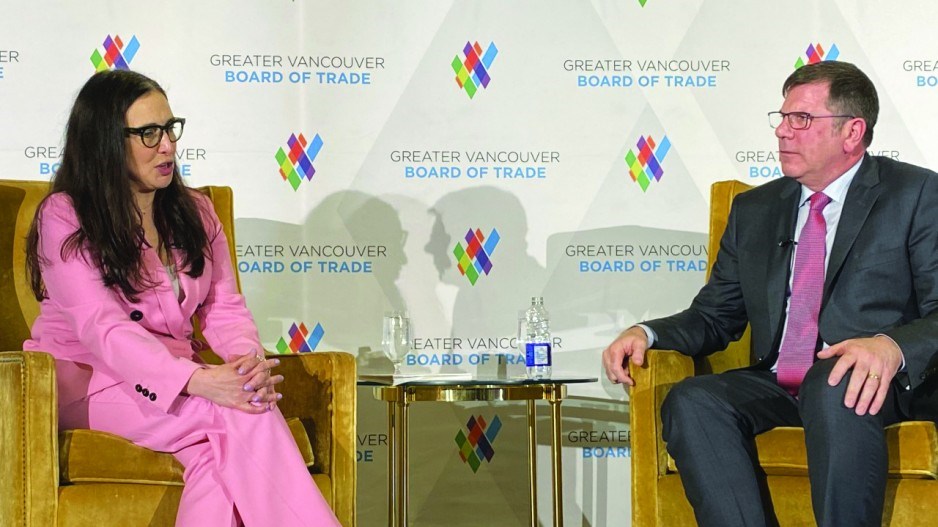One might assume a new provincial critical minerals strategy announced today would be greeted by the mining and exploration sectors with full-throated enthusiasm.
And while the Association of Mineral Exploration (AME) has welcomed the new plan – unveiled this morning by Premier David Eby at the AME’s Roundup conference – the association representing B.C.’s miners is criticizing it for failing to address the fiscal obstacles that B.C. miners face – particularly with respect to a new carbon pricing scheme for industry.
“While the Mining Association of BC supports the direction of Phase 1 of the B.C. government’s new Critical Mineral Strategy, our sector is concerned the strategy is missing a foundational element: competitive fiscal policy,” MABC president Michael Goehring said in a press release, in response to today’s announcement.
B.C. miners already operate in a high cost jurisdiction, the MABC notes. The B.C. government’s new carbon pricing scheme for industry -- output based carbon pricing – will make it even worse, after it comes into effect in April, the MABC says.
The new output based carbon pricing system applies to industries that emit 10,000 tonnes of CO2 per year or more. It will use a performance-based system to reward those emitters that can operate at emissions that are lower than established industry standards with lower carbon pricing, and penalize those that exceed standards with higher carbon pricing.
One way for the mining sector to avoid carbon taxes, as per the output based pricing system, would be to convert their mine haul fleets to electric drive. The problem is that these vehicles are not yet widely available, the MABC says.
“B.C.’s mining and smelting industry supports a carbon price signal, but currently pays the highest carbon tax in Canada and the world, while having the lowest GHG emissions globally – with no opportunity to decarbonize further because zero-emission haul truck technologies are not expected to be commercially available before the end of the decade, at best,” the MABC says.
“It’s imperative existing and prospective critical mineral mines in B.C. pay a carbon tax that is competitive with Ontario and Quebec. If not, the OBPS will negatively impact investment decisions in BC and undermine the goals of the provincial government’s Critical Minerals Strategy.”
Provinces have had some flexibility in setting carbon pricing for their respective industries, and according to the MABC, B.C. went with carbon pricing that is higher than in Ontario and Quebec.
"By 2030, the average copper mine in B.C. will pay three times what that same mine in Ontario or Quebec will pay," Goehring told BIV News.




